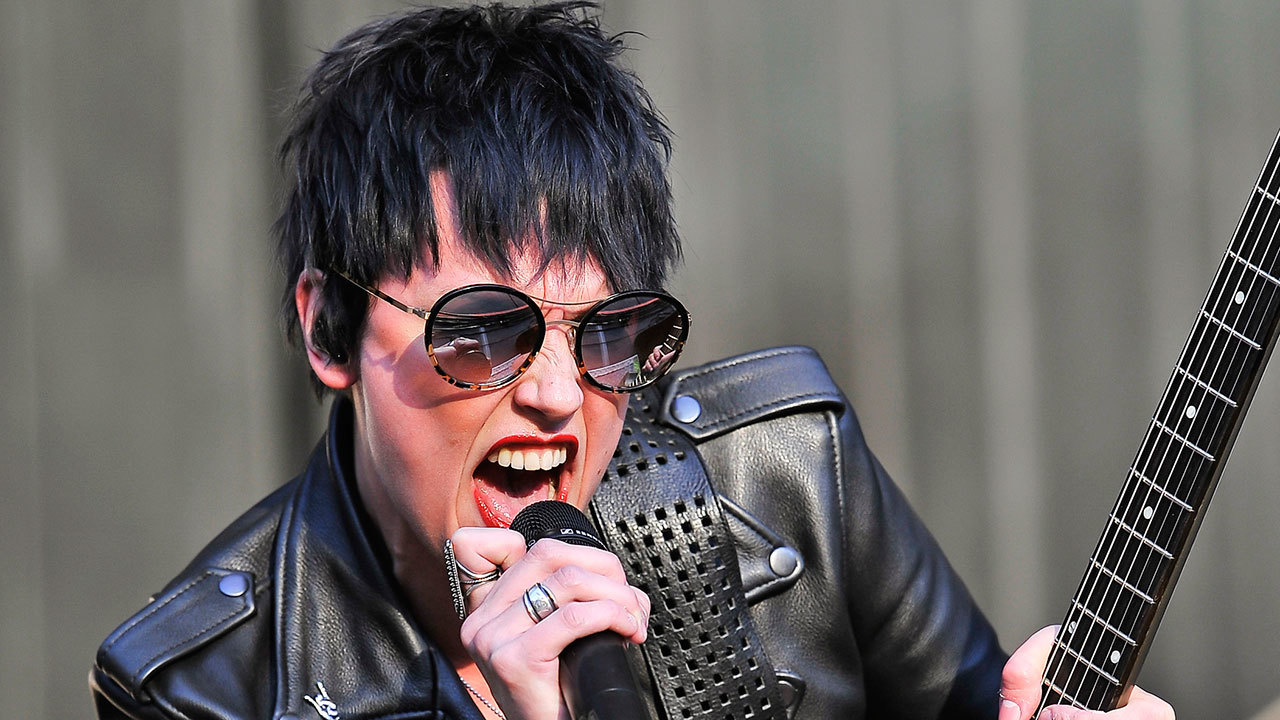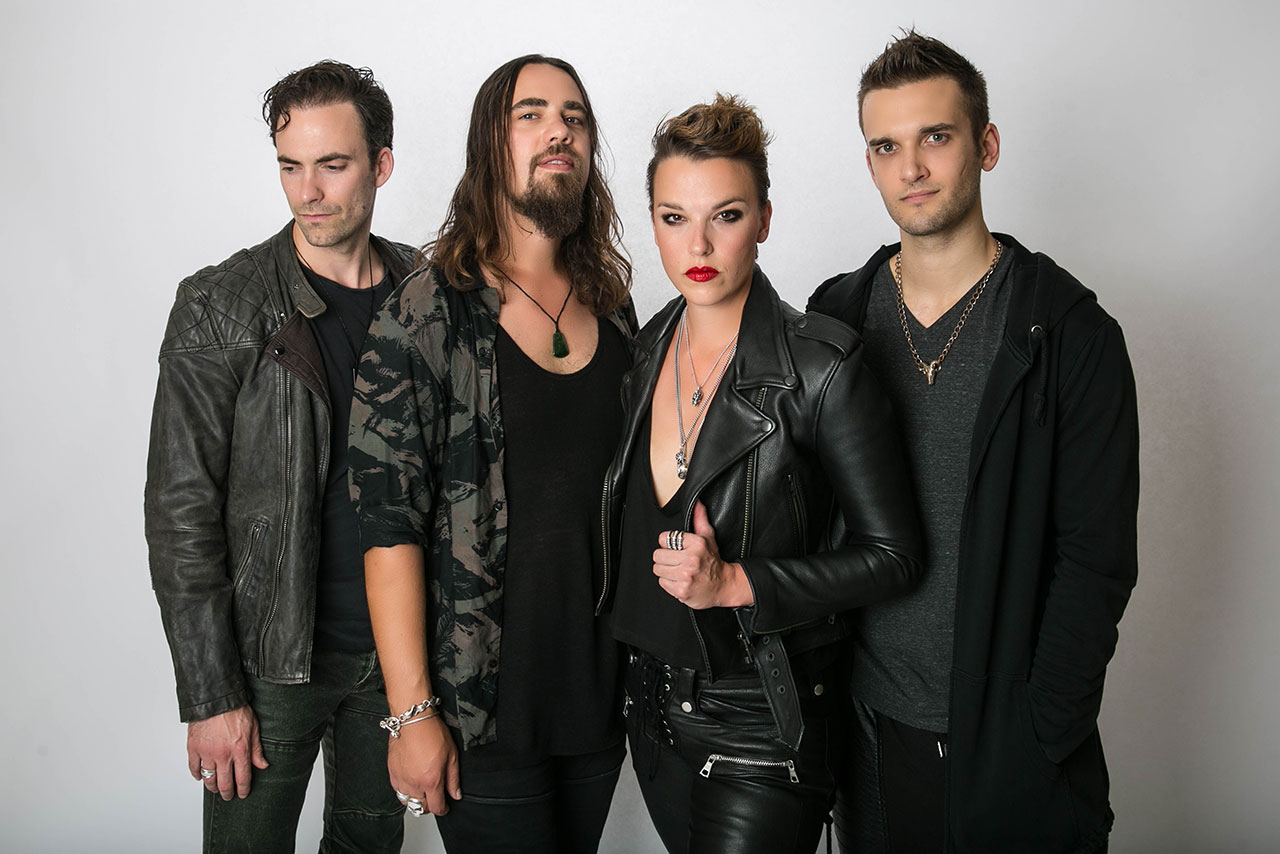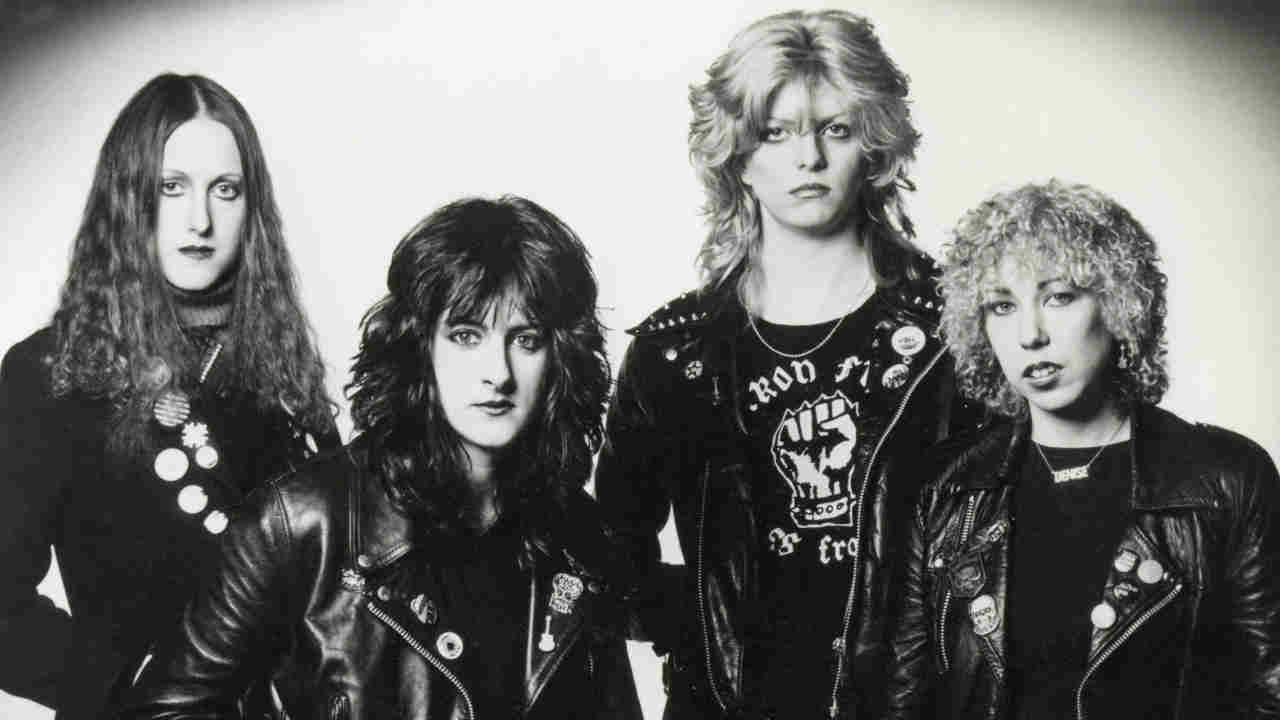Lzzy Hale: I just want to get out there and kick ass
From rural backwater gigging to being the go-to female rock guest, her journey – and that of her band, Halestorm – is still evolving

“It feels like it’s been about six different lifetimes,” Lzzy Hale says, laughing warmly, chatting shortly after the 20th anniversary of Halestorm, the band she co-founded – when she was just 13 – with her drummer brother Arejay. “I haven’t matured much, I’ll say that, but I’ve learned more.”
All leather, terrifying heels and huge beaming mouth, Hale, now 33, is striking yet unfailingly sweet – and arguably the most archetypal female rock star working today (in the classic, Joan Jett-rivalling sense). We caught up with her on a break from recording Halestorm’s fourth, currently untitled, album, working with Foo Fighters producer Nick Raskulinecz.
Halestorm’s previous album, Into The Wildlife, was well-received but also came in for some criticism for its poppier side. Is there a temptation to go the other way with the next record?
We pride ourselves on wearing our emotions on our sleeve, and we follow whatever gets us excited at the time. With the last record we weren’t really sure what it was going to sound like at the time, because we decided not to have a plan. But this next record, will probably be our most rock’n’roll to date. We’re getting not over-thinking it. It’s basically the four of us in a room, like it was in the very beginning of Halestorm in my parents’ basement.
You’ve become something of a go-to guest singer for rock and metal heavyweights (Corey Taylor, Slash, Black Stone Cherry…). Is there anyone else you’d like to collaborate with?
There’s always a running list. I’ve never done anything with the Heart sisters and I definitely would love to do that. Amy Lee [Evanescence] and I have been talking about it for about five years. One of these days we’ll get that going on together.
Having started piano lessons when you were five, you picked up the guitar at sixteen. What inspired that?
Sign up below to get the latest from Classic Rock, plus exclusive special offers, direct to your inbox!
When we started the band, I started watching these old VHS tapes that my parents’ friends would give me, so I had Scorpions and Cinderella’s Night Songs, a collection of their videos. I would watch these and be like: “Man, I have, like, a keytar right now; it is not cool. I wanna be a badass” [laughs]. Shortly after that, one of our first guitar players, who was in the band for about six months, had to leave. My sixteen-year-old self was like: “Alright, we’re probably not going to find another guitar player, I might as well learn.” I wanted to do that anyway.

One of the band’s first gigs was at a local show in which you came second to a tap-dancing cowgirl. Is that as rock’n’roll as things got in Red Lion, Pennsylvania?
We were definitely more unusual. There were a couple of things that you could do in that town: you could work at the local pizza shop, or you could work on the surrounding farms. So I spent most of my young adult life growing up on a twenty-acre farm and we baled hay, and Dad had chickens and sheep and all that stuff. Then the band started, and we were literally selling off some of our animals to buy gear. Our first trailer to carry our equipment in to the gigs was the donkey trailer.
Because of the band members’ ages, a lot of your early gigs were in places like ice cream parlours and coffee shops.
Oh, absolutely. Our first bar that we ever performed at was in Harrisburg, Pennsylvania, called the Rusty Nail. I was fifteen, and the rule was that I couldn’t be anywhere near the bar, but I could be in the corner for happy hour. So we would play the lunch hour. I recently heard back from one of the promoters and he said: “A lot of these club owners chose you over another local band that could bring in a [bigger] crowd because you were really nice people.” So that was a big blessing with us; we’re not going to trash the dressing room, we just want to rock. And we’ve carried that mentality through.
Apparently your dad made a contraption to lift your brother and his drum kit up in the air?
[Laughs] When we were starting out as a band we were trying to figure out some way to stand out from everyone else. So we started looking at old music tapes, and a lot of them were from the seventies and eighties. My little brother said to me: “What about a rotating upside-down drum kit?” My dad is a mechanic, so he was like: “Hmm… let me see if I can figure this out.” One of his friends got these donated old steel beams from a junkyard, and we ended up making a platform, putting it on to two steel pipes, and used an old tractor axle to rotate it round, and then we bolted an old drum kit of Arejay’s on there. They added a seat and old Ford seat-belts and literally buckled him in. It was all manual. Arejay was about ninety pounds at that point, so he didn’t weigh much.
Did he ever fall out?
He never fell out, but we always made sure everything was taken care of before every show. But I will say that over one summer Arejay got really tall and his head did get a little close to the floor now and then. We still have pieces of it in our warehouse, for nostalgia purposes.
Your dad was your bassist at the start when you needed bass for your first studio recordings. What are the best and worst things about having your dad in your band?
It’s a typical teenage story. You start out and you’re like: “Yeah, dad is so cool. He’s, like, in our band.” Then you get a year or two older and you’re like: “You know, it’s kind of lame being in a band with your dad.” No offence to my dad, he’s a sweet guy, but as a teenager I was like: “I’m hanging out way too much with my dad” [laughs]. I had both of my parents working for me for a long time, though, even after we got signed and throughout the first record cycle. I’m really glad I did, because it let them in a little bit, like: “Hey, you know what, you enabled this to happen.”
- The Top 10 Halestorm Songs, by Stone Broken's Robyn Haycock
- Halestorm’s Lzzy Hale loves Ronnie James Dio. And here’s why
- Halestorm singer Lzzy Hale on life, death and the last time she cried
- Classic Rock, Metal Hammer, Prog & TeamRock launch She Rocks month
Rock stars have long been admired for their sex appeal. But when a woman in rock uses her sexuality it tends to create controversy. What are your thoughts?
It’s interesting, because the majority of time I’m hanging out with a bunch of boys, so I see how it affects us on both sides. If a guy fluctuates in his weight, maybe there’s a couple of people that will be like: “Oh, well, he’s living his life out on the road, eating more tacos than everybody else,” and then kind of move on. Whereas the view with girls, whether they end up losing or gaining weight, is that there must be a problem. So in that sense it hasn’t really changed much over the years, and I think it’s more of a personal decision as to how to ignore it. I just had a conversation online [about this] with a couple of people. I like opening things up. People are going to criticise you, you know they are. If you put something out on the internet there’s always going to be two sides to it, and it’s important for people to see that.
You don’t sensationalise things. For example, your bisexuality came to light almost in passing on Twitter, rather than via a big ‘coming out’ statement.
In the past six years or so I’ve got really comfortable with myself. I’ve learned that the things I thought were really important aren’t, and things that I didn’t think were important that now are. So yeah, there’s just no real need for me to make a grandiose gesture about it. But if somebody’s going to ask, I’m not going to lie.
Because they’re so exposed through social media, are today’s rock stars ‘role models’ more than before?
I would hope so. Personally I don’t set out to be, you know, a ‘role model’, but I’m not blind and I’m aware that I’m in a position where I have a choice: I can put out debauchery and negativity, or I can promote positivity and empowerment and encouragement. So I choose the positivity.
Is the public-facing Lzzy very different to the off-stage one?
I think that the Lzzy that I am on stage is an extension of some of who I am, but in all honesty it’s taken being in this band to get to that point. I wasn’t a very outgoing child, I was kind of shy. So I keep referring to myself as a reformed introvert, but it took band therapy to get there. I mean, even early on I really wanted to be like Freddie Mercury and just get out there and kick ass. Inside I felt like I could do it, but then I’d get up on stage and I would have a really hard time looking at people. That just took playing out a lot, and conquering some internal battles.
I’m not a very controversial person in my normal day-to-day life. I like my quiet days, as well as the times when we all are hanging and partying, so there’s a balance to it now.
Since you’ve become successful, what has been your biggest waste of money?
I live in Nashville, near a lake now, and we go fishing a lot. I justify it because it’s a very calming situation; when you’re fishing you’re not thinking about anything but trying to catch a fish. When we were growing up I was quite outdoorsy, so I loved camping and fishing and stuff with my dad. Then I got my first house last year and thought: “You know what I have to get back into.” We could open up a bait and tackle shop, I think.
The pace of success in rock’n’roll for bands has changed completely since the seventies, when it was far more commonplace for a band to rise from nothing to stardom in a minute, and now it takes years of ‘paying your dues’ for just about everyone. Has that frustrated you along the way, or have you enjoyed every moment?
I remember [in the early days] we were touring in a seven-seater conversion van, eating tortilla chips and peanut butter for lunch, because that’s what we had. And I remember discussing that with the guys, and we’d say: “Yeah, but we’re going to do a gig, and there’s a glory in the action of doing it.” It’s always been a slow ride for us. But in hindsight, even if it was a ‘one step forward two step back’ kind of situation, at least we would always continue to move forward. If I could go back and do it again I probably would do it the same way. It’s not a sprint, it’s a marathon.

Polly is deputy editor at Classic Rock magazine, where she writes and commissions regular pieces and longer reads (including new band coverage), and has interviewed rock's biggest and newest names. She also contributes to Louder, Prog and Metal Hammer and talks about songs on the 20 Minute Club podcast. Elsewhere she's had work published in The Musician, delicious. magazine and others, and written biographies for various album campaigns. In a previous life as a women's magazine junior she interviewed Tracey Emin and Lily James – and wangled Rival Sons into the arts pages. In her spare time she writes fiction and cooks.
